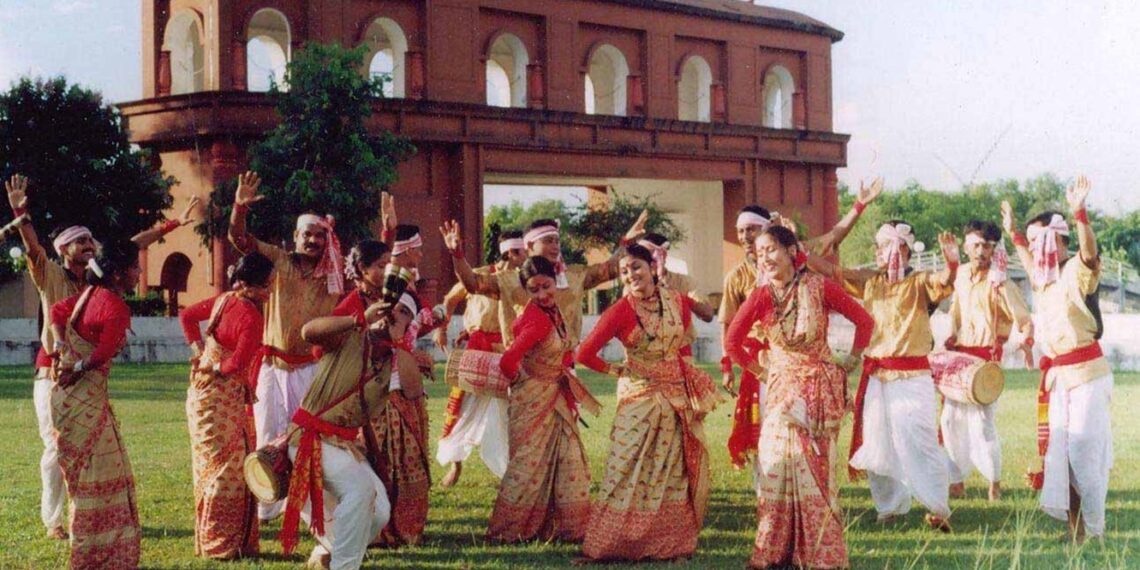GUWAHATI: Amidst the green landscapes of Assam, the arrival of Bohag Bihu, also known as Rongali Bihu, heralds the dawn of a new year and the onset of the harvesting season.
Embraced as a cornerstone of Assamese heritage, Bohag Bihu transcends its role as a mere festival, embodying themes of rejuvenation and communal unity.
Week-long festivities
Commencing with Garu Bihu, the festivities commence with a ceremonial homage to cattle, as they are led to rivers for cleansing rituals and adorned with garlands—a heartfelt prayer for their prosperity and well-being.
Following this, Manuh Bihu sees the community awaken to the day with purifying rituals, including the application of turmeric paste and refreshing baths.
As the sun ascends, homes resonate with the tantalising aromas of Assamese delicacies such as Til Laru, Pitha, Murir Laru, Ghila Pitha, and Poka Mithoi, shared joyously among kin and companions.
Guxai Bihu amplifies the reverence, as households seek blessings from their deities for abundance and harmony, while Taator Bihu illuminates the significance of handloom craftsmanship, a cherished facet of Assamese tradition.
Nangolor Bihu pays homage to the indispensable farm tools pivotal for agricultural sustenance, while GharosiaJibar Bihu acknowledges the invaluable role of domestic animals in rural livelihoods.
Culminating with Chera Bihu, the festival crescendos into a jubilant finale, uniting communities in exuberant revelry.
Beyond festive joy
Rooted in antiquity, Bohag Bihu’s history intertwines with Assam’s agrarian legacy, honouring the advent of spring and the promise of bountiful harvests.
Beyond its agricultural significance, the festival resonates as a cultural beacon, epitomising the spirit of Assamese identity and resilience.
With traditional instruments like dhol, pepa, gogona, toka, and taal infusing the air with melodious rhythms, Bohag Bihu emerges as a symphony of dance and song, celebrating the vitality of life and the blessings of nature.
While Bohag Bihu radiates a unique charm in Assam, its essence reverberates across India in similar spring harvest festivals like Baisakhi, Puthandu, Vishu, and Pohela Baisakh, underscoring the nation’s rich tapestry of cultural diversity and unity in celebration.















